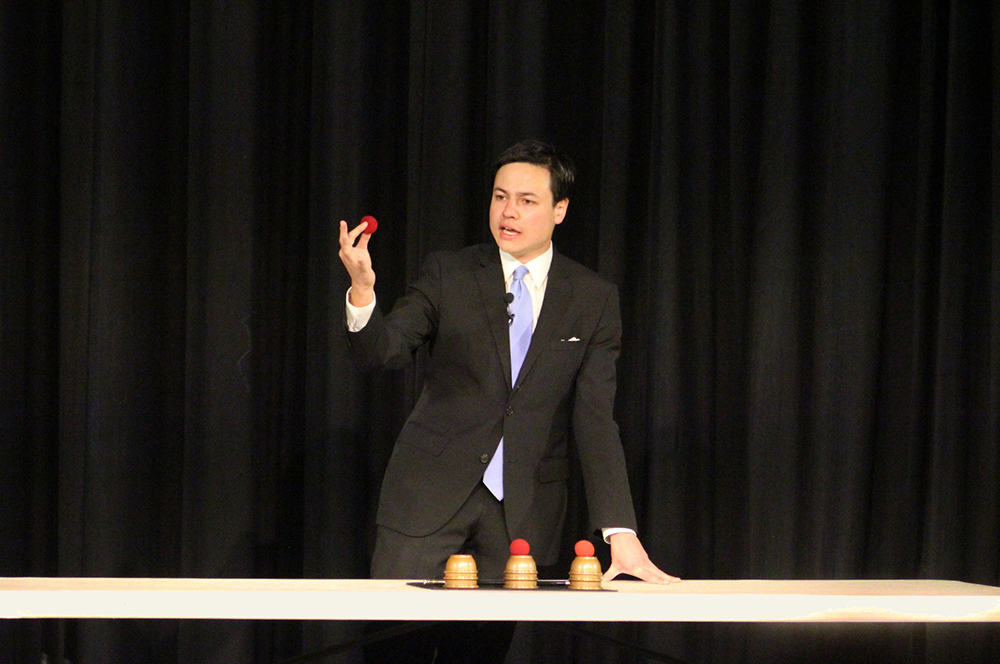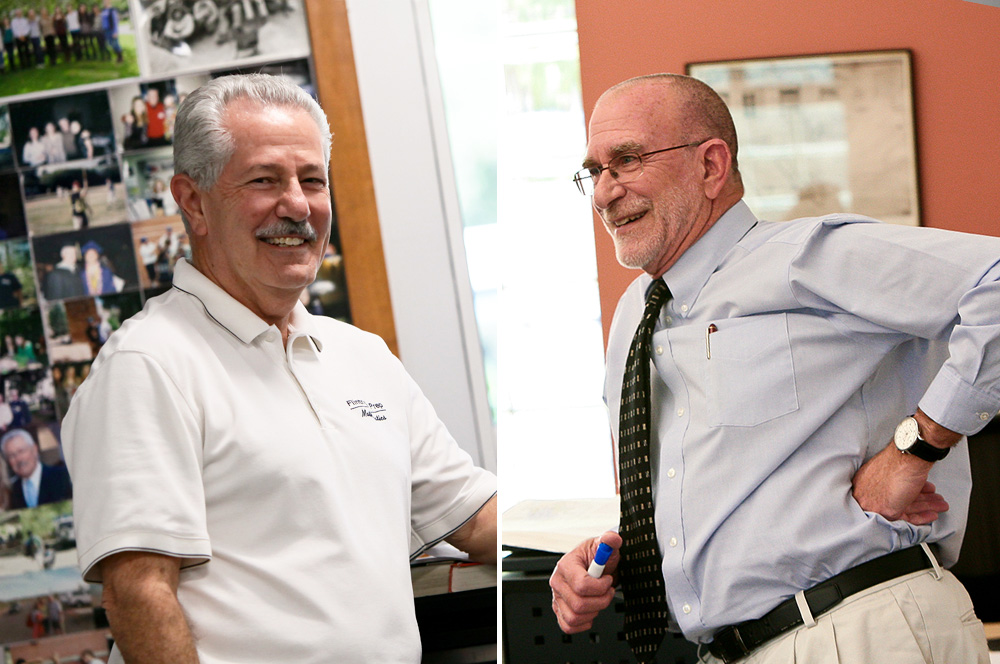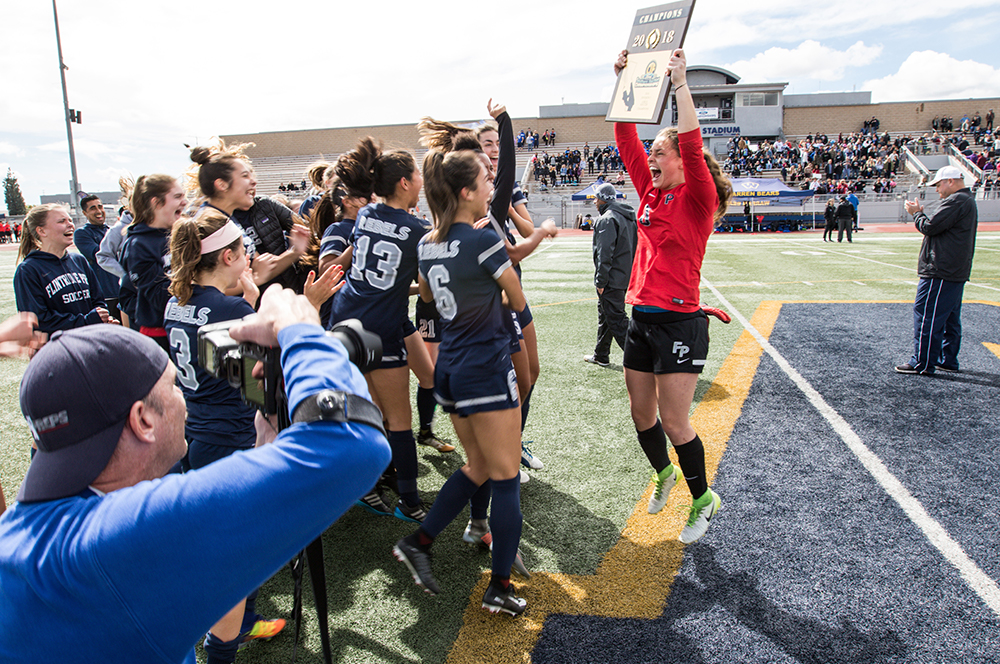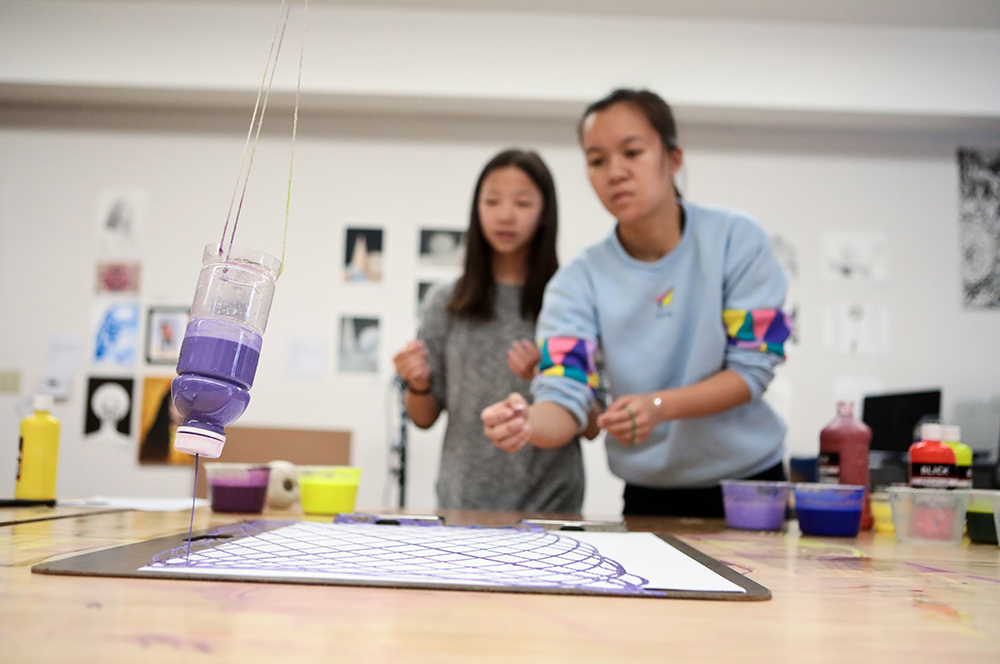Prep alumnus KYLE ESCHEN ’11 held an assembly for students and faculty entitled The Cognitive Science of Magic. He analyzed the cognitive science involved in well-known illusions—thanks to a little on-stage assistance from Ms. Kimble—and explored the applications of that knowledge in other areas of life. After the assembly, he stayed for both lunches to talk through the presentation and answer students’ questions in the library. Besides his interest in magic, Eschen was Prep’s Commissioner General and Founders Trophy winner for the 2010-11 school year.
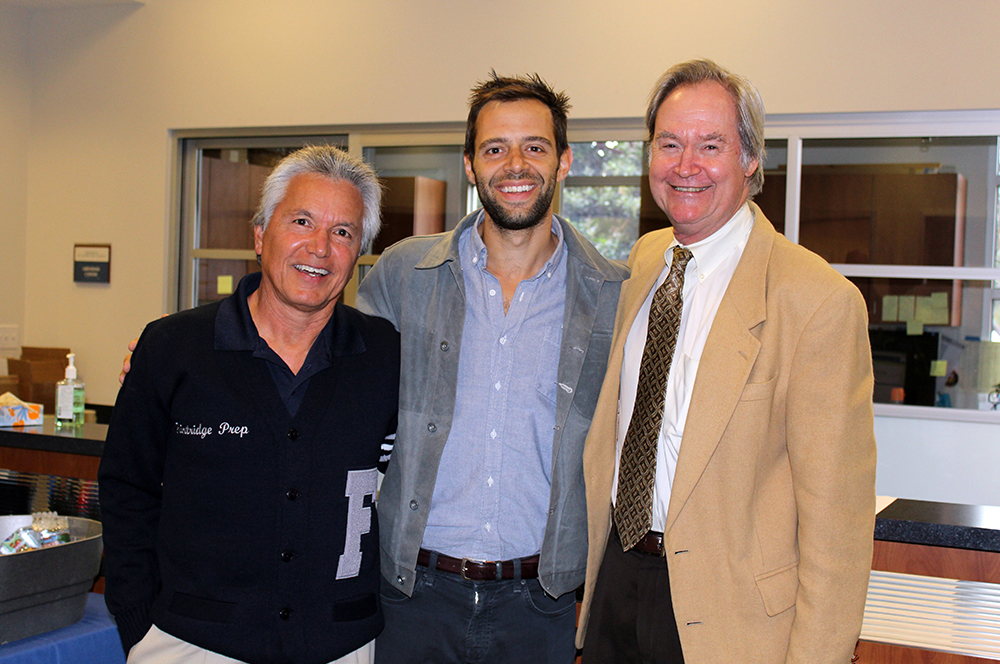
In a lunchtime talk organized by the ACL, FRANK ARTHOFER ’03 talked to students about his time as a Prep athlete and how it helped lead to a successful career on the business side of sports, most recently through his position as Global Head of Digital and New Business at Formula One Management in London. He talked about the importance of authentic relationships at work and said being a leader requires trust, honesty and occasional self-deprecation—all skills he learned to value as a Prep basketball player. During his time at Prep, he wrote his college essay on history teacher John Ruch, who came to watch him talk.
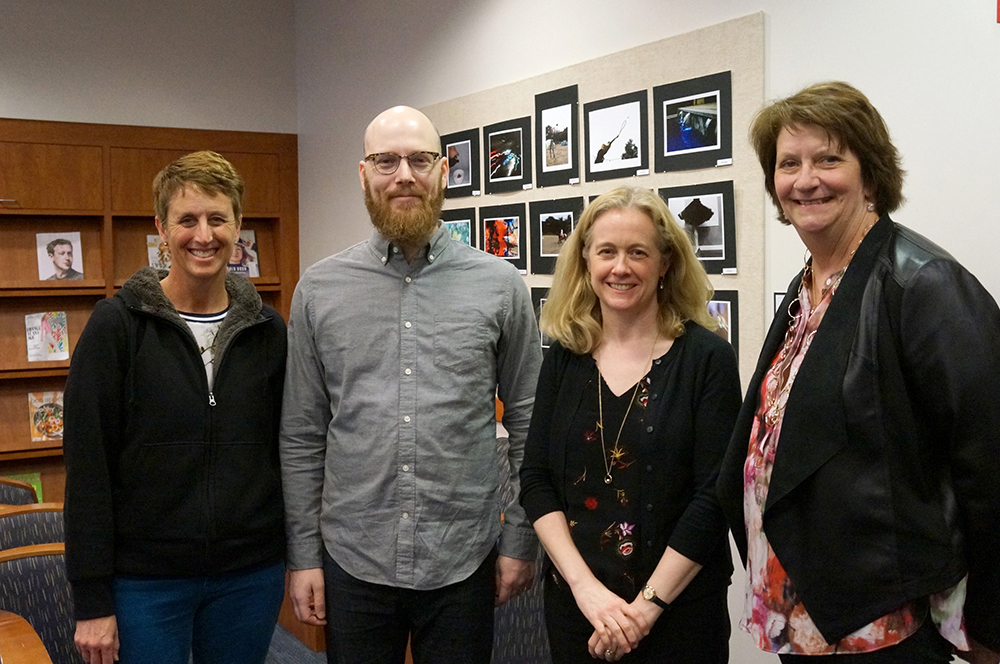
Author and journalist JONATHAN KATZ addressed Prep students and faculty about his experiences as a foreign correspondent in Haiti during the earthquake in January 2010. After initially staying to report on the aftermath of the disaster, he began investigating the UN’s role in a cholera outbreak there. He won the 2010 Medill Medal for Courage in Journalism for his work.
“Journalism is changing,” he says, “The way we deliver information is changing.” He spends a lot of time analyzing the ways objectivity has been challenged in journalism, due in part to the ease of public access to information online.
“Objectivity doesn’t just describe journalism we agree with,” he says. “It also doesn’t mean both sides of an argument are equally right. Both sides can be completely wrong—it’s not X plus Y divided by two.”
Katz’s greatest advice to young scholars and aspiring journalists is to “Analyze, synthesize and share information. You’re under no obligation to close your eyes to what’s happening because you’re afraid of offending someone powerful.”
Katz is the author of the 2013 book The Big Truck That Went By: How the World Came to Save Haiti and Left Behind a Disaster.

